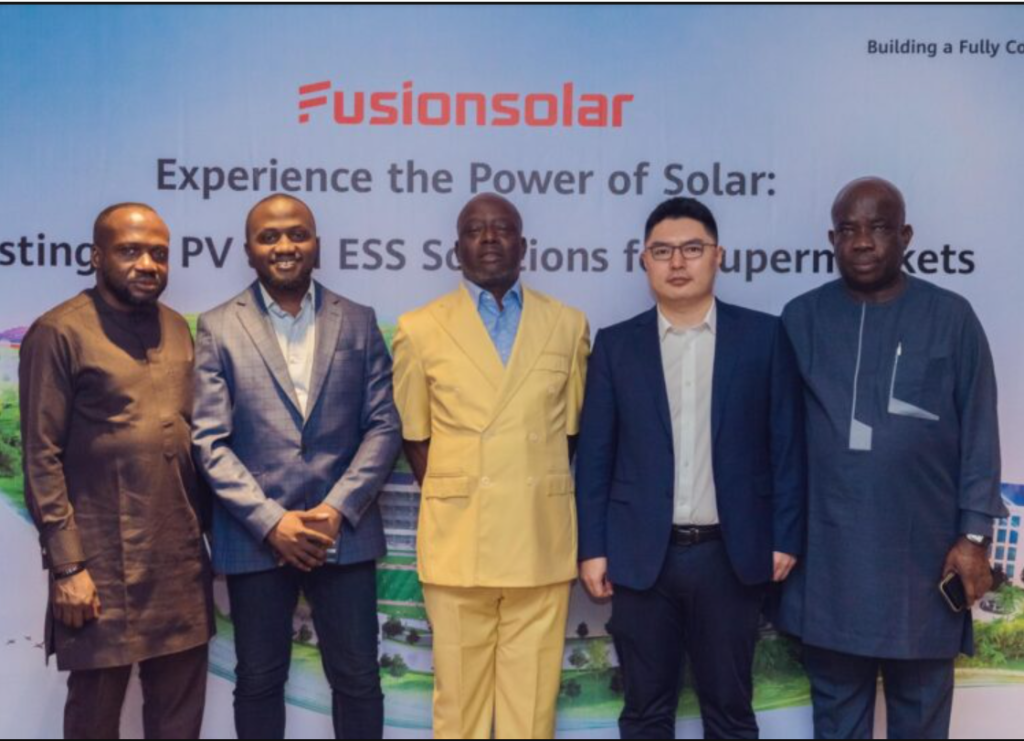
How other businesses can emulate Huawei's Commitment to Greener Nigeria
Huawei’s ongoing commitment to promoting a green economy in Nigeria through its innovative PV (Photovoltaic) and ESS (Energy Storage System) solutions is a testament to the brand’s dedication to corporate social responsibility (CSR).
By aligning its business objectives with the pressing environmental and energy needs of Nigeria, Huawei is setting a powerful example for other companies in the country to follow.
Huawei’s efforts to promote renewable energy and reduce reliance on fossil fuels come at a critical time for Nigeria, a nation grappling with persistent power instability and the rising costs associated with diesel and electricity. By rolling out solar energy solutions tailored specifically for commercial and industrial businesses, such as supermarkets, Huawei is addressing some of the most pressing challenges faced by Nigerian businesses today. This initiative not only supports sustainable business practices but also contributes to the broader goal of reducing carbon emissions and fostering a cleaner environment.
At the recent “Experience the Power of Solar” event, Huawei’s showcase of its cutting-edge PV and ESS solutions demonstrated the company’s long-term vision for a greener Nigeria. The focus on reducing electricity costs and ensuring stable power supply for businesses highlights Huawei’s understanding of the local market’s needs. By providing these solutions, Huawei is not just helping businesses cut costs; it is empowering them to operate more sustainably and contribute to the national agenda of reducing dependence on fossil fuels.
Jeremiah Ejiroghene Aminode, Head of C&I and Solutions Architect at Huawei Digital Power Business, emphasized the significance of this initiative. His remarks underscored Huawei’s decade-long involvement in Nigeria’s solar sector, marking a shift from telecom solutions to a broader focus on commercial and industrial applications. This pivot reflects Huawei’s responsiveness to Nigeria’s evolving energy landscape and its commitment to contributing positively to the country’s sustainable development goals.
Huawei’s integration of advanced AI technologies into its solar systems is particularly commendable. These technologies, which include sophisticated algorithms, ICT components, and intelligent sensors, ensure that the solar energy solutions are not only efficient but also safe and reliable. By leveraging its expertise in ICT, Huawei is pushing the boundaries of what is possible in the renewable energy sector, offering solutions that are both technologically advanced and environmentally friendly.
This level of innovation positions Huawei as a leader in the green economy and showcases the company’s proactive approach to CSR. By ensuring that its products are of the highest quality and aligned with global sustainability standards, Huawei is helping to build a more sustainable future for Nigeria and the African continent.
Huawei’s approach to CSR, particularly in promoting renewable energy, serves as a model for other businesses in Nigeria. Companies across various sectors should take note of Huawei’s commitment to sustainability and consider how they can integrate similar initiatives into their operations. Investing in renewable energy solutions not only makes economic sense—by reducing operational costs and improving profitability—but also strengthens a company’s reputation as a responsible corporate citizen.
Furthermore, businesses that follow Huawei’s lead in adopting green technologies will contribute to a more sustainable economy, which benefits everyone. By reducing their carbon footprint and minimizing reliance on non-renewable energy sources, companies can play a pivotal role in addressing the environmental challenges facing Nigeria today.
A Call to Action
Huawei’s efforts to promote a green economy in Nigeria through innovative solar energy solutions are worthy of high praise. The brand’s dedication to CSR and sustainability exemplifies how businesses can make a significant positive impact on society while achieving their commercial objectives. As Huawei continues to expand its influence in Nigeria and Africa, other businesses should be inspired to take similar steps towards sustainability.
The path forward for Nigeria’s business community is clear: by embracing renewable energy and committing to sustainable practices, companies can drive economic growth, protect the environment, and enhance their social responsibility. Huawei has set the stage—now it’s time for others to follow suit.









